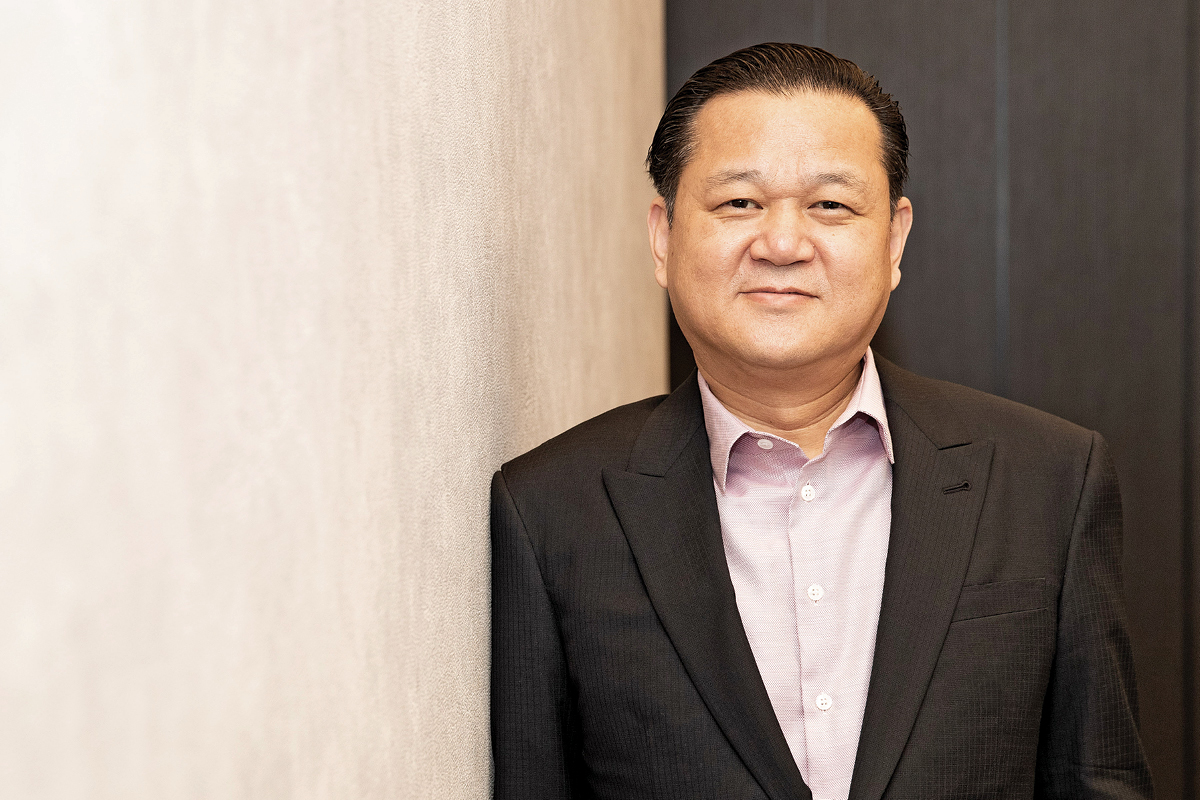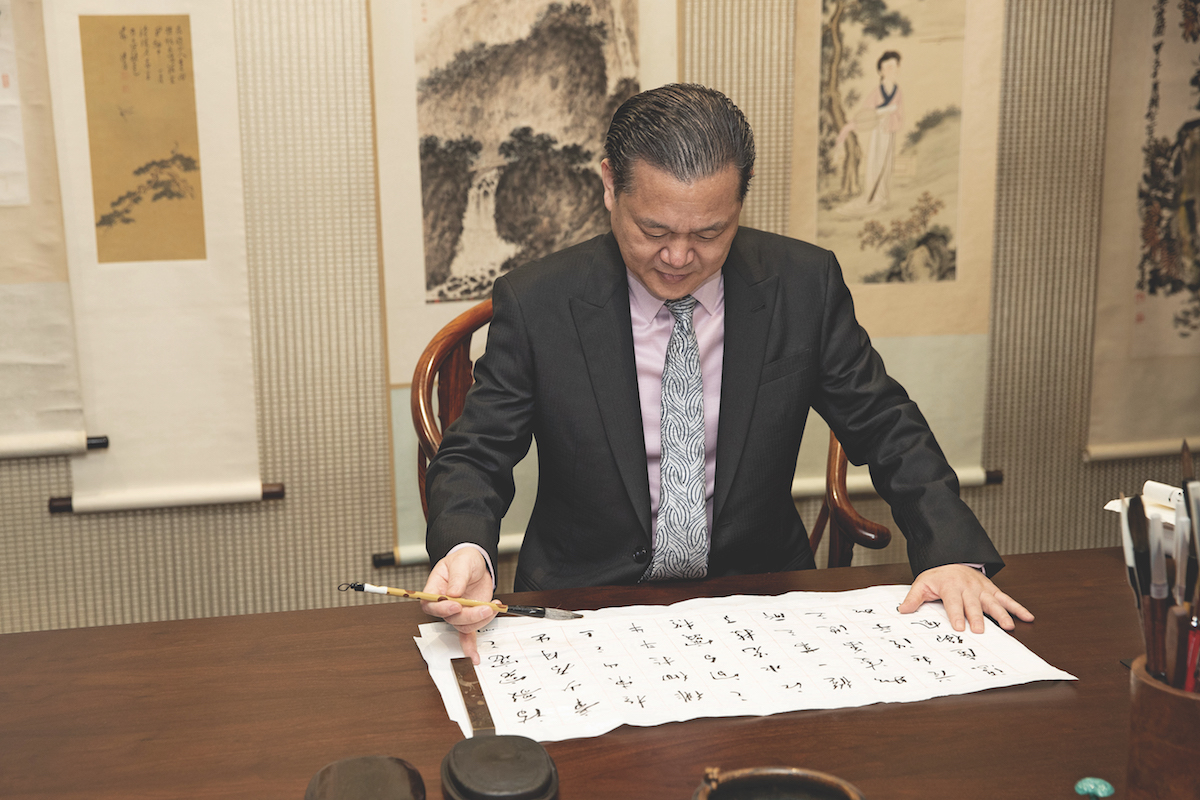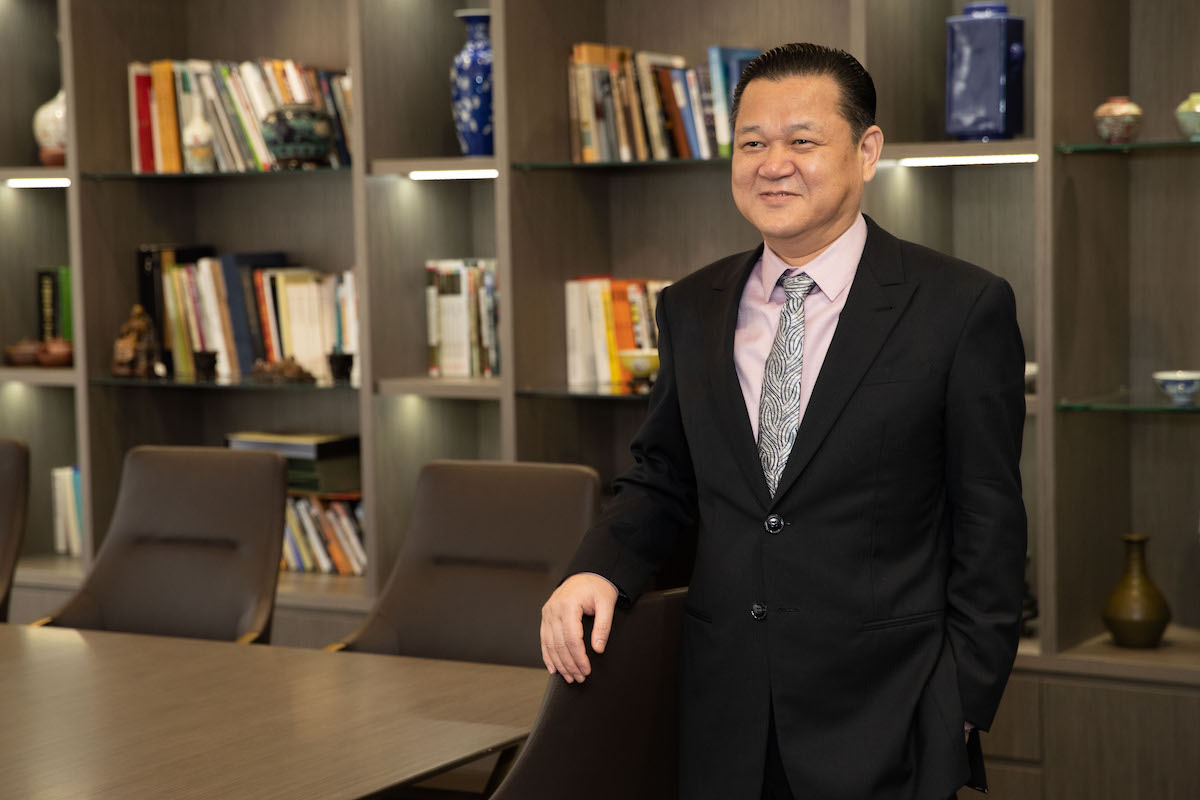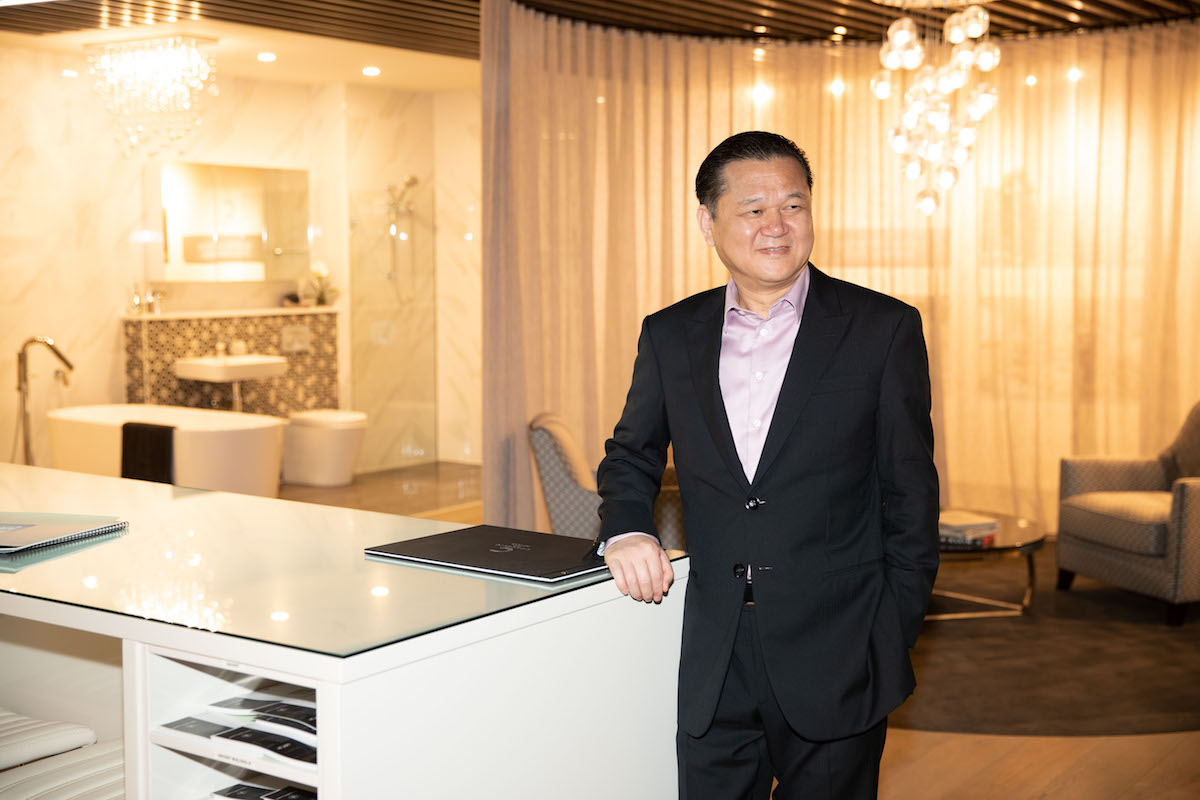Justin Wang is on a mission to revolutionise the property industry. Together with his staff and employees of more than 400 at the Property Investors Alliance (PIA), he is determined to combat a lack of trust in the industry and encourage individuals to make smart investment decisions by investing in property, offering them the tools to make informed decisions and providing management support for the long-term.
Before migrating to Australia in 1993, Justin taught Mandarin Chinese literature in Chinese high schools. Upon arriving in Sydney, he began working in various jobs – in grocery retail, door-to-door sales for the telecommunications company Orange, and as a chef in a Japanese Teppanyaki restaurant, while undertaking an MBA course at the University of Technology, Sydney. In 2002, he decided to start work as a real estate agent. Two years later, following a particularly bad market adjustment in which “the real estate agents were the worst hit”, Justin identified a pressing need for a new property investment model, and created PIA in 2005.

“PIA is a very comprehensive company that started as a simple idea,” Justin tells The CEO Magazine. “In early 2004, many people believed that property was no longer a good investment.” Investors began to offload their investment properties, and real estate agents, too, started to lose confidence in the industry. This didn’t quite seem right to Justin. “I cannot just follow other people’s opinions,” he admits. “I have my own views.” So he decided to do something about it.
Underlying the creation of PIA is Justin’s belief that people will always need property. “Many people see property as something used for speculation, but buying and holding for the long-term is a good investment strategy,” he says, and this belief informed the development of what he terms ‘the PIA concept’ – “A concept for long-term investment, acknowledging that a good property investment can be supplementary to a retirement plan.”
Another thing that makes PIA unique among property investment firms is its commitment to placing a high value on the needs of their clients. It is this understanding that has led Justin to promote his platform as a value chain model for the industry – one which includes all stakeholders in the equation: financiers, developers, builders, investors, staff and tenants. “The smartest property investors want to attract – and keep – good tenants for the long-term.
Tenants desire affordable, safe and quality housing accommodation, therefore they’re critically important in the value chain – to investors, to real estate agencies, to development partners and financiers. The ability for a company such as PIA to be able to find large numbers of quality and stable tenants, in desirable suburbs, provides peace of mind to all parties.”

Justin notes that the industry, in this respect, is rather backwards: instead of starting with the client, it starts with the developers and their product, and Justin intended PIA to turn this state of affairs on its head. PIA’s first decade has certainly seen the company make an impact. “After 13 years of hard work,” he says, “we are no longer agents. We value and look after our client base, we educate people, we stimulate – or create – billions of dollars in demand each year, and only then do we look for the right partners or developers to supply us. We start with the purchaser.”This new market model solidifies PIA’s leading position as one of the most comprehensive property, investment and real estate platforms in the market.
This kind of intelligent and forward-looking strategy means that the benefits of the PIA model extend beyond the purchaser figure, and are starting to make themselves felt industry-wide. “My initial initiative in setting up PIA was to promote a longer-term investment concept,” Justin explains, “but also to create a unique platform for the industry. We are not just selling property, but also carrying out advanced property management, and we have created our own property management software that enables ambitious young professionals to create their property management business within our platform.”
The model is working, and in the face of signs that the property market is slowing, PIA has managed to increase its market share, from between 6% and 8%, to 11%. Justin attributes this to hard work of a high quality, but there are other factors at play. PIA caps its share of foreign investment at 10%, in line with predicted long-term volatility, and the company’s IT systems enable a large sales team to work seamlessly together. “Another thing is that we’re loyal to our stakeholders. We maintain good service, they’re happy, so they continue to partner with us.”
PIA operates with an intention to make things happen. Most impressively, this involves creating demand. “Our approach is different, and it means we don’t have to rely on market momentum,” Justin says. “We rely on internal drivers, like hard work, so that when the market goes down, our share still increases.”

The company’s success relies on the solid relationships it has built with key partners, including the property developer Deicorp and the real estate industry expert Leverage Group, over the years. “Leverage Group has been with us for a long time, since the start,” Justin says. “We are still with them because we share the same values, like professionalism and quality service. We are not shopping around to cut costs; we just focus on the quality. They focus on the quality of education they are providing; we focus on the quality of education we receive.”
There is a focus on replicating the success of these relationships within the company, too. “You can’t expect people to just be loyal to you,” says Justin. “You must ask one question: why would people feel a need to stay within your organisation? If you cannot answer this question, people will eventually go away.” From the beginning, there has been a focus on maximising the positives that a new model can provide. “I created PIA for other people’s benefit. The ultimate goal is not to make money, but to look after all of our stakeholders’ interests.”
Justin doesn’t describe PIA as a company, but as an investment platform, and one that is designed to contribute to reshaping the property industry into one that is sustainable over the long term. For years, Justin has been a supporter of the Urban Taskforce Australia, a not-for-profit organisation dedicated to offering property developers and equity financiers a forum through which they can communicate with local communities and government on matters of urban development.

Ultimately, the success of Justin’s campaign to revolutionise the property game will depend in large part upon restoring trust between and among its various players. A lack of trust is manageable when the market is good; when it’s bad, people withdraw and “the whole industry falls apart”. Justin believes that trust comes from productive integration. “I wanted to build an integrated system, which is why I called it an ‘Alliance’, in which each stakeholder works together, like a value chain.”


